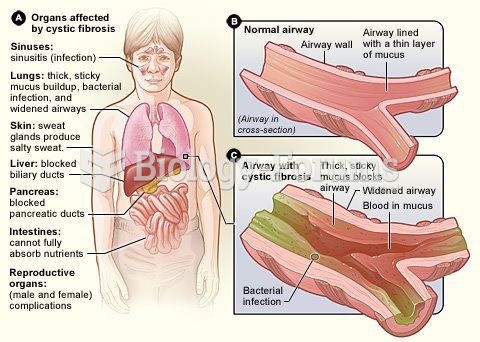|
|
|
The ratio of hydrogen atoms to oxygen in water (H2O) is 2:1.
Not getting enough sleep can greatly weaken the immune system. Lack of sleep makes you more likely to catch a cold, or more difficult to fight off an infection.
Pope Sylvester II tried to introduce Arabic numbers into Europe between the years 999 and 1003, but their use did not catch on for a few more centuries, and Roman numerals continued to be the primary number system.
In 1864, the first barbiturate (barbituric acid) was synthesized.
Before a vaccine is licensed in the USA, the Food and Drug Administration (FDA) reviews it for safety and effectiveness. The CDC then reviews all studies again, as well as the American Academy of Pediatrics and the American Academy of Family Physicians. Every lot of vaccine is tested before administration to the public, and the FDA regularly inspects vaccine manufacturers' facilities.
 Shortly after his death, George Washington had already become myth—part Moses, part angel—in this wo
Shortly after his death, George Washington had already become myth—part Moses, part angel—in this wo
 Number of positive, negative, and neutral images recalled by younger, middle-age, and older adults. ...
Number of positive, negative, and neutral images recalled by younger, middle-age, and older adults. ...





